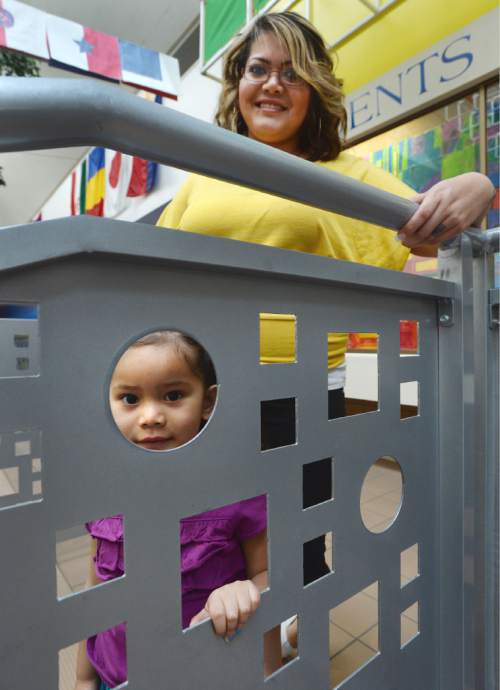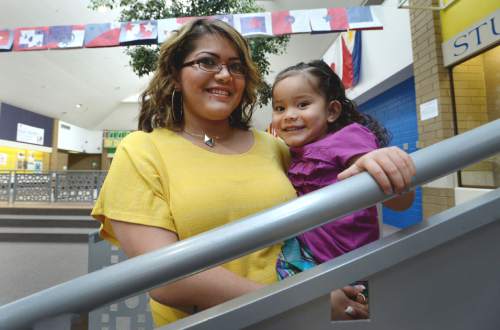This is an archived article that was published on sltrib.com in 2015, and information in the article may be outdated. It is provided only for personal research purposes and may not be reprinted.
The poverty rate for Utah women is climbing as opportunities for them diminish.
That is according to the Institute for Women's Policy Research, which released a report Wednesday that gave the state a C-minus — down from 2004, when the institute awarded Utah a C grade.
Utah ranks 29th in the nation according to the institute's index, which scores by educational attainment, business ownership, poverty and access to health insurance.
Overall, 13.5 percent of women live in poverty in this state, compared to 10.3 percent of men, according to the report, available at http://www.statusofwomendata.org.
American Indian and Latina women in Utah are much more likely to live in poverty than white and Asian women.
And the gender wage gap continues to be an issue for working women, according to the report.
If women received equal pay, institute researchers estimate, the poverty rate for all working women in the United States would be cut by more than half, declining from 8.1 percent to 3.9 percent.
The latest report identifies a trend toward greater educational attainment for women in the Millennial generation — defined in the study as people born between 1979 and 1997 — but that trend does not translate into greater economic security. Millennial women in Utah are more likely to live in poverty (19.2 percent) than Millennial men (15.2 percent).
Millennial women "remain less economically secure than men, even though women throughout the United States continue to outpace men in earning college degrees," the report said.
Overall in Utah, 28.9 percent of women hold a bachelor's degree or higher, compared with 33.7 percent of men. "Women in Utah have made educational gains in the last 25 years, but still face a persistent gender wage gap and higher rates of poverty than men in the state," said Anne Burkholder, CEO of the YWCA Utah.
Access to education varies across racial and ethnic groups, the report said. Nationally, Asian/Pacific Islander women are the most likely to have a bachelor's degree or higher (48.4 percent), while Latinas are the least likely (15.3 percent).
In Utah, Latinas are the least likely to have a high-school diploma; 33 percent have less than a high-school diploma, compared with just 4.7 percent of white women.
Women in this state also own a much smaller share of businesses than men. In Utah, women own 24.9 percent of businesses, ranking the state 46th in the nation. Between 1997 and 2007, the proportion of women-owned businesses in the United States increased from 26.0 percent to 28.8 percent.
Christopher Smart





